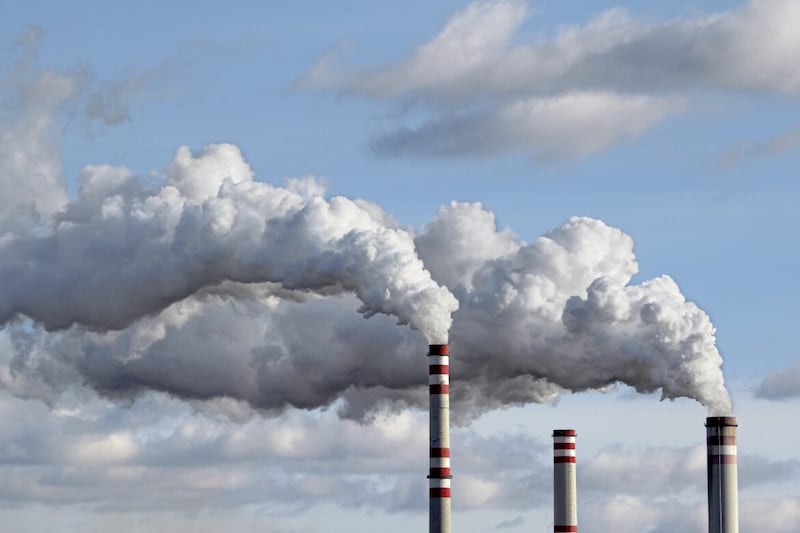Desperate prayer, drink, drugs, or television cookery shows 24/7?
Locked together in the mind’s eye, immovable northern politics and a burning world could tempt almost anyone into bad choices. The be-aproned ones mean no harm but the mindlessness of what TV cooks do is a worry.
There is an answer available, a deterrent to hopelessness. It’s called hope.
Those who have reached the age of reason need hope that the world can pull back from total disaster, to push against the certainty that the greatest polluters of the earth will not be shamed into lessening the damage they do and to save the most vulnerable from despair.
The calmest and most rational climate-change campaigners confront the point that despair is damage unmitigated, pure and simple and disastrous.
Read more:
Fionnuala O Connor: Denial and distance rival smoke and ash as Europe burns
Hottest July on record and possibly in the last 120,000 years, say scientists
Earth needs a world climate crisis organisation, says eminent scientist
Not Too Late is how the title Changing the Climate Story from Despair to Possibility begins, though it could also be sub-titled ‘Cheering Thoughts’. By Rebecca Solnit, yep for those who’ve heard of but never read her, the person to whom a random man on a train explained her own book, not one bit embarrassed when she eventually got a word in and told him who she was.
She made another title out of that in 2008: Men Explain Things to Me. Before tackling despair about climate change she produced a history of activism and social change from the fall of the Berlin Wall, Hope in the Dark. Hope, she has argued for years, is an alternative to the certainty of both optimists and pessimists.
She has a concise argument against defeatism. Like despair – "an emotion but not an analysis" – it equals "surrendering in advance and inspiring others to do the same... and if we do nothing we settle for the worst outcome".
The fossil fuel industry and other vested interests, she writes, are the problem, the obstacles political.

Worth storing in your mental toolbox while Rishi Sunak grovels to car owners against attempts to lessen London’s polluted air through extending those low emission zones that Keir Starmer also slighted, and goes on to attack LTNs, low traffic neighbourhoods. (Even before today’s increasingly obvious election mode set in, one Tory MP called LTNs "an international socialist concept".)
When the politics where you live are stuck beyond apparent hope it’s a major challenge, but if there hadn’t been a hope-peddler called Hume the Troubles might never have come to the nine-tenths end that they did.
Pre-Hume, northern constitutional nationalism was a sorry business. The hope that took him through repeated clarifications and Jesuitical formulations to bring republican front-men towards politics, with the help of Irish diplomats and the patient closest aides, was the most winning quality in his own politics even when scratched and eroded in later years by frustrating experience, ceaseless travel, the flattery of celebrity-hunters and sheer bodily wear and tear.
Gallant Pat Hume’s central contribution may have been her tireless faith and hope that her man was making a difference.
He gave up on the unionism of his day, and no wonder. The southern and other voices that blamed him for not ‘reaching out’ were never impressive, their last imagined heroes the next generation of unionist recruits.
Paul Givan. Emma Little-Pengelly, Timothy Johnston. Smart young blood, it was said, which out-classed the Sinn Féin ex-prisoners among their SpAd counterparts. To what end? Arlene Foster was the future once. I rest my case.
What can be done to lessen the damage humankind has done to the earth or stop it increasing? Protesting and lobbying are good mental exercise. Too few pitch into the holdouts who deny that pumping out poison and excavating the earth wrecks the air around us.
Places sometimes flourish through change. New and old arrived peaceably together last weekend in central Belfast. The ‘biggest ever’ Pride burst into technicolour around the City Hall while someone preached, unflustered, against forbidden sins and a marching band came into earshot drumming the end of July.







